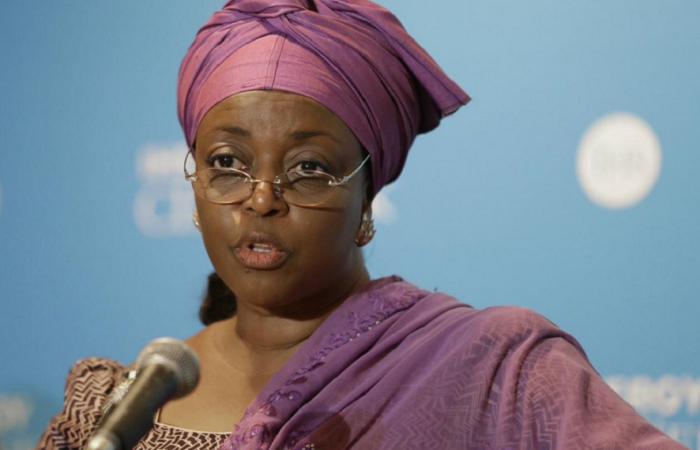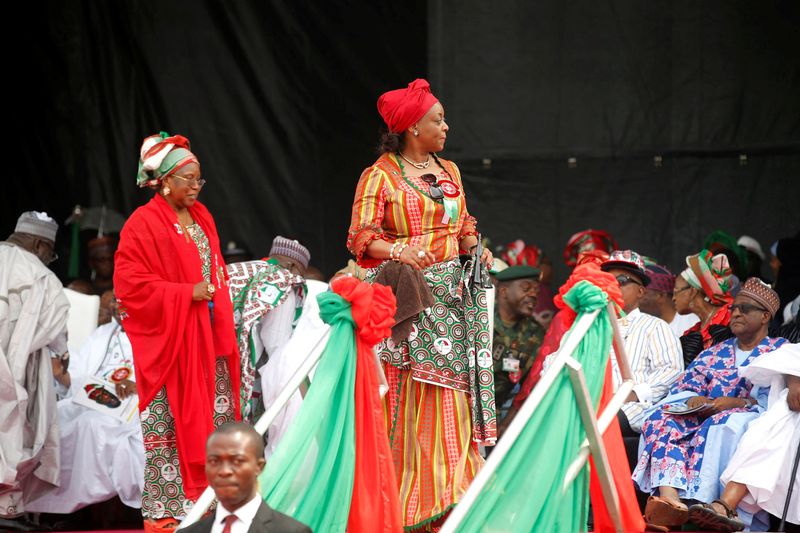UK Crime Agency Charges Nigeria’s Former Oil Minister with Bribery Offenses: Allegations of Corruption Shake Global Energy Industry

UK Crime Agency Charges Nigeria’s Former Oil Minister with Bribery Offenses: Allegations of Corruption Shake Global Energy Industry
In a stunning development that has sent shockwaves through the global energy industry, the United Kingdom’s Crime Agency has charged Nigeria‘s former oil minister, Diezani Alison-Madueke, with multiple bribery offenses. The allegations come as a powerful blow to the reputation of both the Nigerian government and the energy sector, raising concerns about corruption’s reach in the heart of the industry.
Unveiling the Charges
The charges against Diezani Alison-Madueke were announced after a thorough investigation by the UK Crime Agency. The agency alleges that Diezani Alison-Madueke accepted substantial financial incentives and perks in exchange for granting lucrative oil contracts to certain foreign companies. These transactions are said to have taken place when Diezani Alison-Madueke held a prominent position in Nigeria’s oil ministry, wielding significant influence over the nation’s vast petroleum resources.
A Web of Corruption
The investigation sheds light on a complex web of corruption that seems to have spanned borders and involved multiple players. It is alleged that Diezani Alison-Madueke used their influential position to manipulate the oil industry’s affairs for personal gain. The companies accused of offering bribes to Diezani Alison-Madueke are reported to have close ties with prominent figures in the international business arena.

The intricate network of corruption detailed in the charges underscores the broader issue of unethical practices that can erode the integrity of not only a nation’s economy but also the global energy landscape. With the energy sector being a cornerstone of modern economies, any hint of corruption within its ranks can have far-reaching consequences.
Global Implications
The ramifications of these charges extend beyond national borders. Nigeria, being a key player in the global oil market, has been grappling with issues of corruption within its oil sector for years. These charges against a former oil minister intensify concerns about the nation’s ability to effectively manage its oil resources, maintain transparency, and attract foreign investments.
Furthermore, the charges have implications for international companies involved. If found guilty, these companies could face severe reputational damage and potential legal actions. This situation prompts a reevaluation of due diligence procedures for businesses operating in countries with a history of corruption, where navigating legal and ethical challenges is crucial.
Cracking Down on Corruption
The charges against Diezani Alison-Madueke highlight the ongoing efforts by various countries and international organizations to combat corruption in high-stakes industries. The UK Crime Agency’s role in investigating and bringing charges against a former Nigerian official demonstrates the commitment of the global community to hold individuals accountable for corrupt practices, regardless of their positions or affiliations.

These charges also underline the significance of international collaboration in the fight against corruption. Such cases often involve a web of players spread across different nations, necessitating cooperation among law enforcement agencies and governments. The Diezani Alison-Madueke case is a prime example of how countries can work together to uphold the principles of transparency and justice.
Rebuilding Trust
As the legal proceedings unfold, Nigeria faces the challenge of restoring confidence in its oil industry and government institutions. The allegations against Diezani Alison-Madueke further tarnish the nation’s reputation and reinforce negative perceptions about corruption within its ranks. To regain trust, Nigerian authorities must take decisive actions to address these issues head-on, implement reforms, and ensure that such misconduct is thoroughly investigated and appropriately punished.
Similarly, international stakeholders in the energy industry are closely observing how the case progresses. Companies operating in Nigeria and other resource-rich nations are likely to reevaluate their engagement strategies, placing a higher emphasis on ethical conduct and compliance with anti-corruption laws.

Conclusion
The charges brought against Nigeria’s former oil minister, Diezani Alison-Madueke, by the UK Crime Agency have sent shockwaves through the global energy industry. The allegations of bribery and corruption cast a shadow over not only Nigeria’s oil sector but also the broader international energy landscape. As legal proceedings unfold, the case underscores the importance of transparency, accountability, and international cooperation in combatting corruption within high-stakes industries. The world watches closely as the impact of these charges reverberates across borders, prompting nations and businesses alike to reevaluate their commitment to ethical practices and the rule of law.




